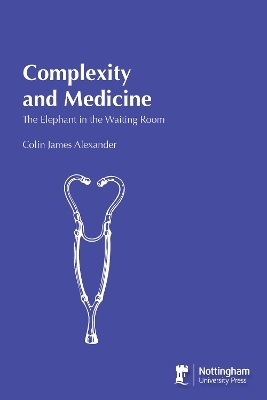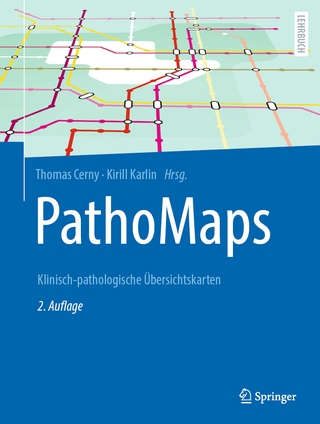
Complexity and Medicine: The Elephant in the Waiting Room
Nottingham University Press (Verlag)
978-1-907284-56-4 (ISBN)
- Titel nicht im Sortiment
- Artikel merken
Complexity science, used in disciplines as diverse as economics and meteorology, involves the study of dynamic networking systems in which the outcomes are dependent on interactions between individual elements and can not be predicted from an examination of the components. Tissues and organs have been shown to be just such systems, yet the concept has made negligible penetration into medical thinking. The author demonstrates how this science can be used to solve common problems in clinical medicine.
The first section explains why Medicine’s scienti¬c method, well suited to linear problems and testing, is inadequate in the face of non linear systems. It examines Chaos Theory and Self Regulating Dynamic Systems, and proposes a Complexity based search model for developing hypotheses in complex disease.
In the second section, the author makes use of his extensive research to test the model against a range of unsolved disorders, formulating hypotheses for osteoporosis, idiopathic osteoarthritis, Pagets disease and diseases of the spine.
The model is shown to be applicable to disorders of other systems, such as asthma and varicose veins, and to be demonstrably more effective than a conventional approach in fin¬nding cause.
Complexity Theory is the elephant in Medicine’s waiting room – a reality ignored for too long. Unless it is embraced by Medicine many complex diseases will remain unsolved.
Colin Alexander was a well respected Radiologist with a long interest in skeletal radiology in particular. He published numerous research articles including several related to Osteoarthritis and Osteoporosis. He became Foundation Professor of Radiology at the Auckland Medical School in 1976. He died aged 87, shortly after completing this book, which was a culmination of a lifetime of research and original thinking
THE PROBLEM OF COMPLEX DISEASES * The failure of medicine: finding cause in complex diseases * Chaos theory * The complex self-regulating dynamic system * A search algorithm for finding cause * TESTING THE PATTERN-MATCHING MODEL * Idiopathic osteoporosis * Chaos theory and paget's disease * Diseases of the spine * Soft tissues, varicose veins, asthma * Idiopathic osteoarthritis * Search for a mechanism for the unused arc theory * Search for a matching pattern * Testing the unused arc hypothesis * The obstacles to finding cause * Poincare, and the numbers fallacy * References
| Erscheint lt. Verlag | 1.9.2010 |
|---|---|
| Sprache | englisch |
| Maße | 156 x 234 mm |
| Gewicht | 297 g |
| Themenwelt | Mathematik / Informatik ► Informatik ► Theorie / Studium |
| Medizin / Pharmazie ► Medizinische Fachgebiete ► Medizinethik | |
| Studium ► 2. Studienabschnitt (Klinik) ► Pathologie | |
| ISBN-10 | 1-907284-56-7 / 1907284567 |
| ISBN-13 | 978-1-907284-56-4 / 9781907284564 |
| Zustand | Neuware |
| Informationen gemäß Produktsicherheitsverordnung (GPSR) | |
| Haben Sie eine Frage zum Produkt? |
aus dem Bereich


